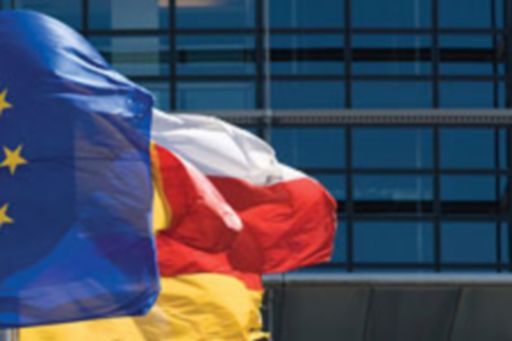Euro Tax Flash from KPMG's EU Tax Centre
Euro Tax Flash from KPMG's EU Tax Centre
The Council of the European Union has released details of a possible draft EU directive addressing certain anti-base erosion and profit shifting (BEPS) issues.

Details of Draft EU Anti-BEPS Directive Released
European Union – Action Plan on corporate taxation – Aggressive tax planning – Anti-BEPS Directive - CCCTB
The Council of the European Union has released details of a possible draft EU directive addressing certain anti-base erosion and profit shifting (BEPS) issues.The proposals derive from discussions at the technical level and EU Member States will now have to review them and make their positions clear. Further work is required on a number of key aspects. The issues covered reflect certain international aspects of the proposal for an EU Common Consolidated Corporate Tax Base (CCCTB), including a number that are directly linked to OECD BEPS Actions.
Background
The initiative should be seen in the context of the EU Commission’s Action Plan for Fair and Efficient Corporate Taxation, launched in June 2015 (see ETF 253) (PDF 91 KB). In the Action Plan, the Commission announced its intention to re-launch its proposal for the CCCTB. The Luxembourg Presidency subsequently put forward the idea of splitting off certain international anti-BEPS aspects of the CCCTB proposal that would lead to an “anti-BEPS Directive”. The Commission is currently conducting a public consultation on the CCCTB proposal as a whole (see ETF 260).
Details of proposed text for Anti-BEPS Directive
The proposed rules lay down standard, de minimis, rules in the following areas:
a) Definition of permanent establishment
b) Controlled Foreign Companies
c) Switch-over clause
d) General anti-abuse rules (GAAR)
e) Exit taxation
f) Interest limitation
g) (Possible) hybrid mismatches
Permanent establishments
The proposed rules on permanent establishments (PEs) are primarily aimed at the ‘artificial avoidance’ of PE status. They address the ‘preparatory and auxiliary’ exceptions, related party combined activities, and the concept of dependent and independent agents.
Controlled foreign companies
The proposed controlled foreign companies (CFC) rules only apply to non-EU CFCs. The CFC’s income would only be taxable if certain thresholds were met as regards ownership, effective tax rate, and passive income.
Switch-over clause
The switch-over clause would also be limited to non-EU situations and would mean a credit for foreign tax applying instead of an exemption. Again this would be subject to certain thresholds being met.
GAAR
This would require EU Member States to ignore arrangements that did not comply with the standard, which would comprise both a motive test and a substance test.
Exit taxation
The proposed exit tax rules would apply to certain cross-border transfers of assets or to residence either within the EU or non-EU countries. The rules broadlyreflect EU case law on this.
Interest limitation
The proposed interest limitation rules would take the form of an earnings stripping (fixed ratio) rule and a group equity/assets rule.
Hybrid mismatches
These proposals cover both EU and non-EU situations involving hybrid entities and hybrid PEs. They reflect ongoing work on soft-law solutions by the Code of Conduct Group.
EU Tax Centre comment
The proposals outlined above are likely to undergo changes as the political debate develops. Certain areas are noted as requiring further work, such as the transposition of the soft-law approach on hybrids to a hard law approach, and opposition from certain EU Member States has been noted in respect of various text passages. It is clear that a lot of issues still need to be resolved if EU Commissioner Moscovici’s ambition to present the new proposals next January are to be met.
Robert van der Jagt
Chairman, KPMG’s EU Tax Centre and Partner, Meijburg & Co
vanderjagt.robert@kpmg.com
Barry Larking
Director EU Tax Services, KPMG’s EU Tax Centre
Director, Meijburg & Co
larking.barry@kpmg.com
© 2024 KPMG LLP, a Delaware limited liability partnership and a member firm of the KPMG global organization of independent member firms affiliated with KPMG International Limited, a private English company limited by guarantee. All rights reserved.
For more detail about the structure of the KPMG global organization please visit https://kpmg.com/governance.
